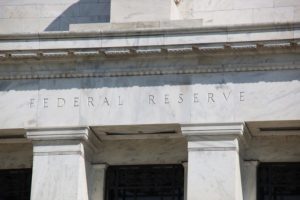The ‘Comfy Retirement’ Dream Has Exploded
No Wall Street rally can obscure the scary historical prospect that most Americans now working can expect to have less income security in retirement than their parents had.Rally, schmally.
I’m with the president on this one — not because Barack Obama’s administration has handled the banking crisis well (it hasn’t) but because Obama is fundamentally right about obsessive watching of Wall Street. Its jittery swings really do have a lot in common with those daily tracking polls taken during campaigns, which can move up or down on the basis of a speech that misses the mark, or a “Saturday Night Live” skit that hits it dead-on.
And at this point, we need to confront an elemental truth: No Wall Street rally can obscure the scary historical prospect that most Americans now working can expect to have less income security in retirement than their parents had.
That’s not saying much. The average annual Social Security benefit among current retirees stands at $13,864 — roughly what a minimum-wage worker earns in a year. Half of all people 65 and older have incomes of less than $17,382 a year.
Still, millions in the current Social Security generation have traditional pensions from unions or big corporations, which once took pride in offering a retirement plan that guaranteed a lifelong, monthly income to former workers. But today, such pensions are all but extinct, pushed into oblivion by a corporate strategy of lowering costs by shifting to 401(k) plans in which workers save for their own retirement and manage their own investments.
No need to point out how this has worked: The median balance in family retirement accounts was $45,000 in 2007, according to the Federal Reserve. Now even those have shriveled with the stock market slide. And many employers have temporarily halted their matching contributions to 401(k)s as they struggle to weather the recession.
Lawmakers have known about all of this for years — the decline of traditional pensions, the paltry balances in contributory retirement plans, the lack of access to any retirement plan (only about half of workers have any type of coverage). Just like fixing the badly eroded health insurance system, stabilizing the foundering American pension system is on that long to-do list that never seems to get done.
For all the political talk about not leaving a legacy of diminished living standards to our children, we have now managed to diminish our own futures, as well as theirs.
Labor unions and pension-rights activists are beginning to work together in much the same way that advocates of universal health care organized more than two decades ago: by compiling the cruel facts and trying to force policymakers to confront them. The Pension Rights Center and other groups have launched a campaign called “Retirement USA” with the goal of getting a universal, secure and adequate retirement system in place. Generally speaking, they seek a mandatory private pension system in which employees and employers both contribute, in which the pension is portable as people change jobs, and that is structured to provide lifetime monthly benefits after retirement.
If this sounds a lot like the only functioning part of the current retirement system — Social Security — that’s because it is. If common sense were applied to the pension problem, we would find a way to use the current Social Security system — which already is mandatory, is portable between employers and has an administrative system for payroll deductions and benefits in place — and enrich its benefits. Logic, of course, rarely prevails.
“I don’t think I would be able to convince anybody that the only thing we should have is Social Security,” says Barbara Kennelly, president of the National Committee to Preserve Social Security and Medicare.
But the prospects for a new, mandatory employer-based pension system are, at best, problematic. After all, employers didn’t shed their pension obligations over the past three decades only to take on new ones now. Most proposals on the table are merely attempts to patch the holes in the 401(k) and individual retirement account systems.
The trouble is, the protection these savings plans were supposed to provide has never been enough. Research by Gary Burtless of the Brookings Institution shows, for example, that even if a worker invested 4 percent of earnings over 40 years in a mix of stocks and bonds, the employee would be able to replace only a quarter of his or her pre-retirement earnings in retirement.
We have already squandered one generation’s chance for peace of mind in old age. We shouldn’t allow the next to inherit this mistake.
Marie Cocco’s e-mail address is mariecocco(at)washpost.com.
© 2009, Washington Post Writers Group
Your support matters…Independent journalism is under threat and overshadowed by heavily funded mainstream media.
You can help level the playing field. Become a member.
Your tax-deductible contribution keeps us digging beneath the headlines to give you thought-provoking, investigative reporting and analysis that unearths what's really happening- without compromise.
Give today to support our courageous, independent journalists.






You need to be a supporter to comment.
There are currently no responses to this article.
Be the first to respond.